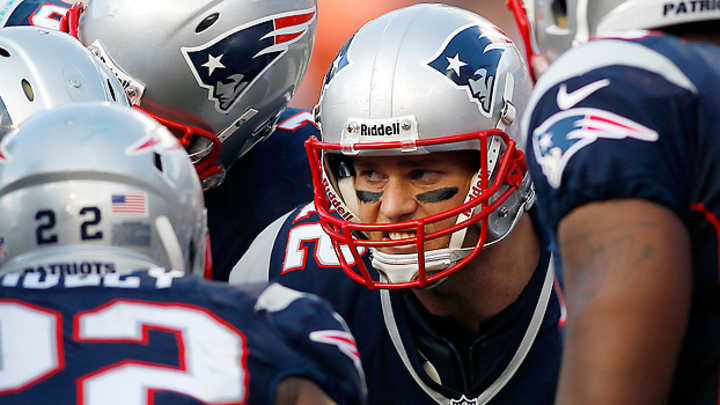Tom Brady, New England Patriots agree on three-year extension


Tom Brady took a huge step today to ensure he'll retire a Patriot, agreeing to a three-year contract extension that will keep him under center for New England through the 2017 season, when he will be 40 years old.
For the second time in his illustrious career, Brady is doing something players in this day and age simply do not do: As he did in 2005, Brady, a league source told SI.com, is signing a contract with New England that will pay him significantly less money than the market will bear, in large part to help the Patriots stay competitive for the next five seasons.
Amazingly, according to the source, the deal is for an eye-poppingly conservative $27 million, which is less than half his worth by any measure.
The extension will pay Brady a $3 million signing bonus immediately, in addition to salaries of $7 million in 2015, $8 million in 2016 and $9 million in 2017. Brady told Sports Illustrated five years ago he wanted to play until he was 40, at least, and this will accomplish that. He turns 40 on Aug. 3, 2017.
The upshot of the deal is to give the Patriots massive cap relief in a flat-cap era. He was due to count $43.6 million on the New England salary cap in 2013 and 2014. Now, his cap numbers will add up to $28.6 million in the next two years, a savings of $15 million in cap dollars at a time the Patriots have free agents they want to sign to help keep the team atop the AFC East, which they have dominated since Brady took over at quarterback in 2001.
After the Patriots move money around to lessen the blow of Brady's money in a flat-cap era -- the NFL's salary cap is expected to be virtually the same in the next two years as it was last season, about $121 million a year -- here will be Brady's cap numbers over the next five seasons, according to a source with knowledge of the contract:
2013: $13.8 million 2014: $14.8 million 2015: $13 million 2016: $14 million 2017: $15 million
The Patriots can do this by guaranteeing his salaries for the next three and giving him much of the money in a chunk of a bonus right now. That, the source with knowledge of the contract said, is what the Patriots intend to do. And history points to Brady doing the same thing eight offseasons ago.
SI VAULT: Tom Brady is Sports Illustrated's 2005 Sportsman of the Year
In 2005, after his third Super Bowl title, Brady agreed to a six-year, $60 million deal, which at the time was dwarfed by Peyton Manning's contract, which averaged $14.2 million a year. This year, clearly, he is doing exactly the same thing -- in fact, giving the team even more of a hometown discount -- with one goal in mind: to keep the Patriots competitive for the rest of his career. He's putting his money where his mouth is. He knows it's easy for him to make millions in endorsements. One teammate once said about Brady he would be such a sore loser he'd do whatever it took to never lose. At a time when the growing market for quarterbacks pegs the average per year at about $20 million -- Drew Brees and Peyton Manning are there, and it's likely Super Bowl champ Joe Flacco will be there soon -- Brady's average over the next six years will be consistently about 30 percent lower.
It's very likely Brady feels the same way today as he felt in 2005, when he did the last sub-market deal. "To be the highest-paid, or anything like that, is not going to make me feel any better,'' he said in 2005. "That's not what makes me happy. In this game, the more one player gets, the more he takes away from what others can get. Is it going to make me feel any better to make an extra million, which, after taxes, is about $500,000? That million might be more important to the team.''
In an important free agency period, when New England will be fighting to stay relevant and win its first Super Bowl since the 2004 season, they should have the financial ammunition to fortify the team. They could bolster the pass rush by signing free agent Dwight Freeney of the Colts, or the secondary by signing veteran safety Ed Reed, also a free agent. On offense, they could open the wallet to re-sign Brady's favorite receiver, Wes Welker, or maybe aim higher for a younger franchise receiver like Mike Wallace of the Steelers. All of a sudden, New England will have an additional $15 million of cap freedom, while two-thirds of the teams in the league struggle to do anything in free agency because they're so snug to the cap.
GALLERY: Rare Tom Brady photos | Fashion icon
